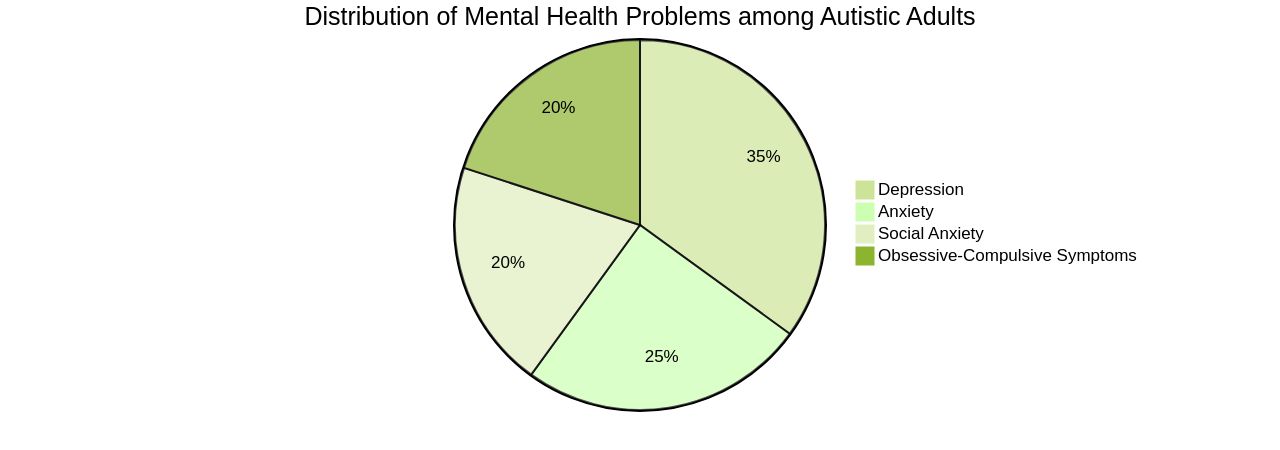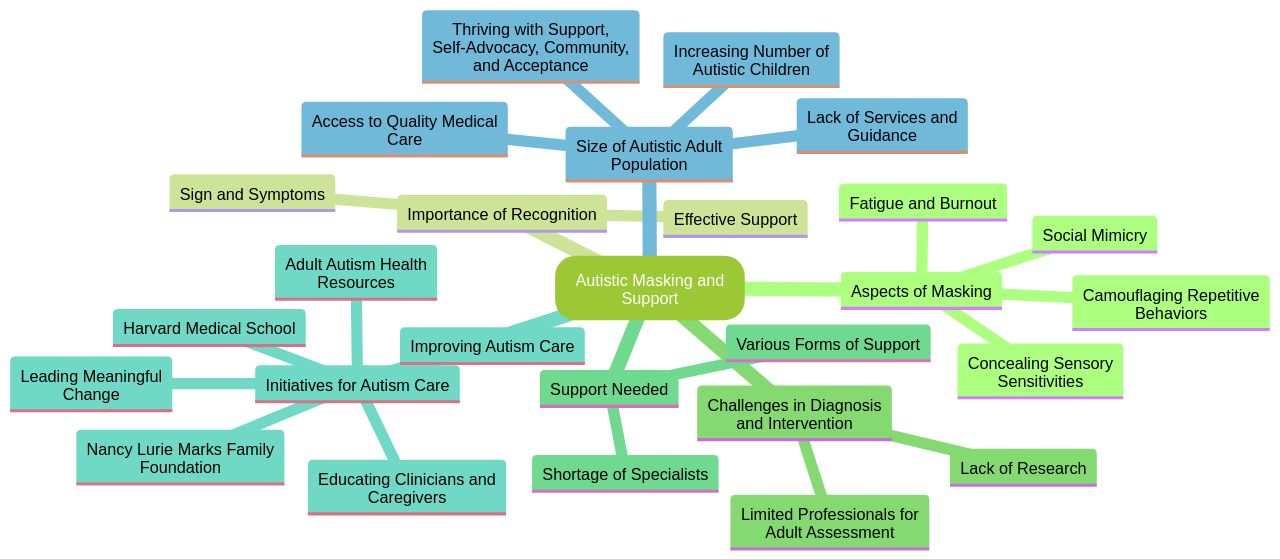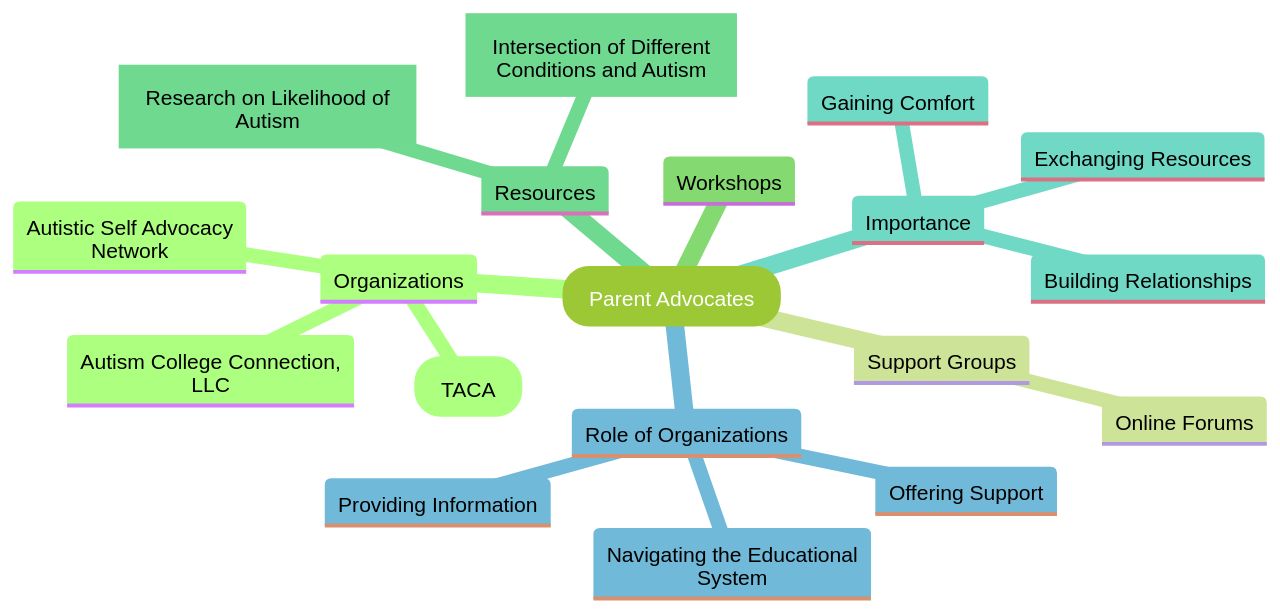Introduction
Autistic Masking: Navigating the Challenges and Supporting Your Child's Well-being
Autism, a lifelong difference in how people communicate, interact, and behave, affects a significant portion of the global population. Within societies that emphasize conformity, autistic individuals often engage in a practice known as "autistic masking."
This involves suppressing or mimicking their autistic traits to fit into social situations. However, this constant effort to blend in can lead to increased stress and emotional challenges.
In this article, we will explore the concept of autistic masking, its impact on mental health, and strategies for supporting autistic children. We will also discuss the importance of recognizing the signs and symptoms of masking, seeking professional support, and connecting with other parent advocates. By understanding these aspects, we can empower ourselves as parents to navigate the complexities of autism and ensure the well-being of our children.
What is Autistic Masking?
Autism, a lifelong difference in how people communicate, interact, and behave, affects an estimated 1% to 4.7% of the global population. Autistic individuals often engage in a practice known as 'autistic masking' where they mimic or suppress their autistic traits to blend into social situations.
This is observed more in societies that emphasize conformity, creating additional pressure on autistic individuals to 'act non-autistic'. This continual effort to fit into a neurotypical world and the restrictions on natural autistic behaviors in social settings can lead to a cycle of stress and emotional challenges.
Research involving 787 autistic adults revealed that such camouflaging is closely linked to heightened levels of anxiety and depression, notably more pronounced in females. Furthermore, it has been reported that 79% of autistic adults suffer from mental health problems such as depression, anxiety, social anxiety, and obsessive-compulsive symptoms. In addition to these psychiatric disorders, almost all medical conditions were significantly more common in autistic adults, including immune disorders, gastrointestinal disorders, sleep disorders, seizures, obesity, dyslipidaemia, hypertension, and diabetes. In light of these findings, it is crucial to promote mental health prevention in this population and recognize the capacity of all autistic adults to camouflage, the impact it has on their health, and the capacity it has to impact the diagnostic process.

Recognizing Autistic Masking: Signs and Symptoms
Deciphering the distinction between an individual's outward behavior and their authentic inner experiences is a complex undertaking when it comes to comprehending the intricacies of autist masking. Autistic masking may manifest itself through:
- Social mimicry: This entails individuals emulating the behaviors, interests, and modes of communication of others to assimilate and appear more socially conventional.
- Individuals with autism may hide or suppress their sensory sensitivities to avoid drawing attention or seeming different. - To adhere to societal norms, individuals might attempt to control or minimize their repetitive behaviors in public settings, in order to camouflage their autist nature.
- The effort involved in concealing their autist traits can lead to increased stress, anxiety, and mental exhaustion, which can cause fatigue and burnout. It is crucial to acknowledge these signs and symptoms to understand the experiences of an autist child and provide appropriate support.
However, it's important to note that these signs can often be overlooked due to the coping strategies developed by the individual or the social support they receive. Additionally, understanding that autistic individuals often focus intently on one section of the face may provide further insight into their unique way of interacting. Identifying these traits in an autist can lead to a more accurate diagnosis and intervention, which is vital as research indicates that early support can lead to better mental health outcomes in adulthood. Assessing adults with autism can be challenging due to the cost and the limited number of professionals skilled in the autist evaluation process. Therefore, it's critical for those supporting a child with autism to be equipped with the right knowledge and resources to assist in this process.

Strategies for Supporting Autistic Children
In the journey of supporting an autistic child, there are pivotal strategies that can be employed:
- Foster an accepting environment: Cultivate a home atmosphere that allows your child to be their authentic self without fear of judgment or criticism.
This approach promotes well-being and reduces the risk of overstimulation, which can be triggered by a variety of factors, including loud noises, bright lights, strong smells, and tactile sensations. 2.
Acknowledge their unique experiences: Recognize and affirm your child's unique experiences and challenges associated with autistic masking. Ensure they know that their feelings and struggles are valid, and that they have your unwavering support.
- Promote self-advocacy: Empower your child to voice their needs and preferences.
This includes teaching them to express their boundaries, request accommodations, and communicate their sensory sensitivities. 4.
Provide sensory support: Understand and accommodate your child's sensory sensitivities. This involves creating a sensory-friendly environment at home, providing sensory tools and strategies, and helping your child develop coping mechanisms to manage sensory overload. 5. Celebrate self-expression: Encourage your child to express their true self through their interests, hobbies, and creative outlets. Celebrate their uniqueness and help them develop a sense of identity and self-confidence. By adopting these strategies, you not only support your autistic child in embracing their true self but also assist them in navigating the challenges of autistic masking. Remember, each autistic individual's needs are unique, and the approach should be tailored accordingly.

Seeking Professional Support
When navigating the complex journey of autism, it's crucial to tap into a multidisciplinary team of professionals who can provide comprehensive support for your child. Autism specialists can offer critical insights into your child's unique needs, demystifying the complexities of autism and fostering a deeper understanding of their individual challenges.
Occupational therapists play a critical role in formulating effective sensory integration strategies, aiding in managing sensory sensitivities that are common among children with autism. Speech-language pathologists can pave the way for improved communication skills, enhancing social interaction, and pragmatic language abilities.
Mental health professionals, experienced in working with individuals on the autism spectrum, can be invaluable when your child experiences anxiety, depression, or other mental health challenges. Keep in mind, the quest for professional support is a testament to your dedication to your child's well-being, not a sign of weakness.
As echoed by Jan Stewart, a renowned mental health and neurodiversity advocate, persistence in finding the right help is key. Remember, help is available, hope is abundant, and you are never alone in this journey. The road may be challenging with systemic issues often presenting hurdles rather than helping hands, but your relentless advocacy will ensure your child gets the support they need. Your child's well-being is the ultimate goal, and every step you take brings you closer to that goal.

Connecting with Other Parent Advocates
Building meaningful relationships with fellow parent advocates can be an empowering way to navigate the complexities of autism. These connections, whether made in local support groups, online forums, or through attending autism-focused workshops, offer a wealth of shared experiences and insights.
The Autistic Self Advocacy Network, for instance, is a strong platform that seeks to advance equal access, rights, and opportunities for autistic individuals, making it an invaluable resource. Moreover, through these interactions, you can not only exchange resources but also gain comfort in the shared journey of parenthood.
For example, the Autism College Connection, LLC offers a variety of private support services, including preparing parents for life after high school and addressing employment issues. It's worth noting that children with autism often need additional support to reach their educational potential.
This is where organizations like The Autism Community in Action (TACA) come in, providing information about medical research, treatment options, therapies, nutrition, and more, making the educational system more navigable for parents. The journey of raising a child with autism is unique, as expressed in the quote, 'Every day brings a new beginning and a new ending.' This journey may indeed be challenging, but remember, hope and relationship-building are key components. As studies indicate, the wider system is often the main hurdle rather than individual professionals. As such, strengthening our communal efforts and sharing resources can significantly improve the support we provide for our children.

Conclusion
In conclusion, autistic masking is a practice where individuals with autism suppress or mimic their autistic traits to fit into social situations. However, this constant effort to blend in can lead to increased stress and emotional challenges. It is crucial for parents to recognize the signs and symptoms of masking, such as social mimicry, concealing sensory sensitivities, camouflaging repetitive behaviors, and fatigue and burnout.
By understanding these signs, parents can better comprehend their child's experiences and offer appropriate support. Creating an accepting environment at home, acknowledging their unique experiences, promoting self-advocacy, providing sensory support, and celebrating self-expression are all strategies that can help support autistic children. Seeking professional support from a multidisciplinary team of specialists is also essential.
Autism specialists, occupational therapists, speech-language pathologists, and mental health professionals can provide valuable insights and assistance tailored to your child's needs. Building connections with other parent advocates is another empowering way to navigate the complexities of autism. Through local support groups, online forums, or attending workshops, you can gain shared experiences and resources.
Platforms like the Autistic Self Advocacy Network and organizations like The Autism Community in Action (TACA) offer invaluable resources for parents. Remember that every step you take in supporting your child's well-being brings you closer to your goal. The journey may be challenging at times due to systemic issues, but by persistently advocating for your child and connecting with other parent advocates, you can make a significant impact in improving support for your children with autism.




